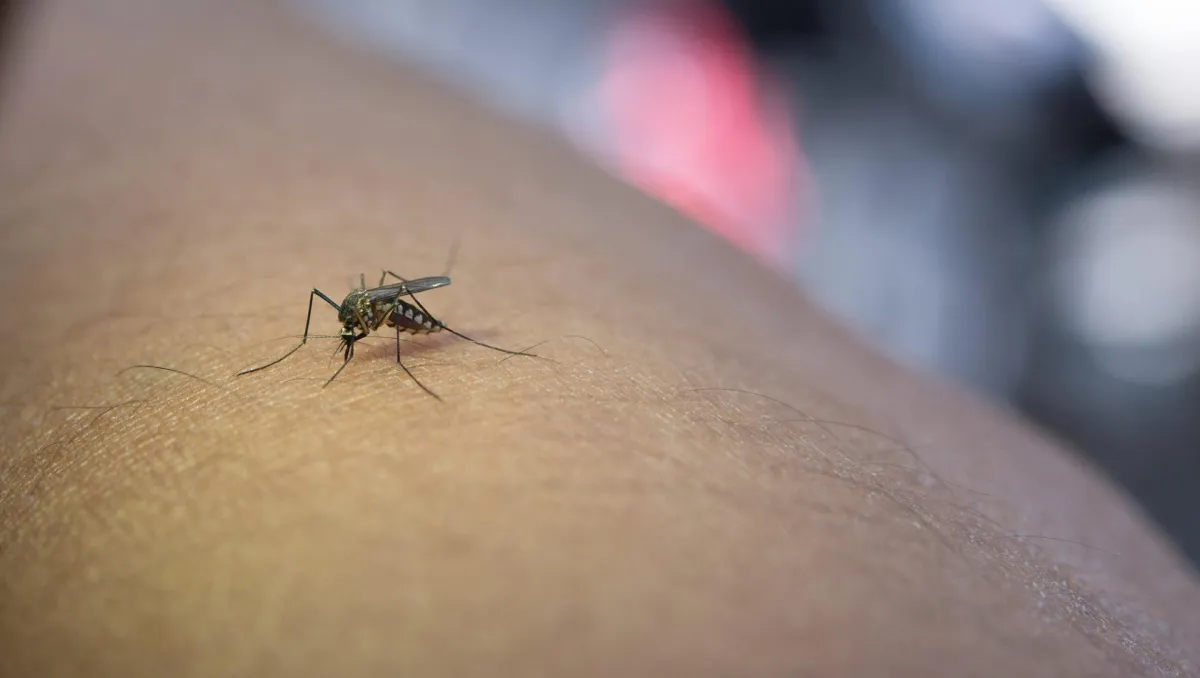American Allegiance Pest Control
Blog

Mosquito and Flea Control Tips for Southwest Florida Yards | Local Experts
Introduction
You step into your backyard on a warm Florida evening and within minutes mosquitoes are swarming. Your dog starts scratching, and you notice fleas hopping in the shaded grass. Living in Southwest Florida means dealing with pests that thrive in our heat, humidity, and frequent rainfall.
This guide will explain why mosquitoes and fleas are so common here, how to reduce their presence, and what steps you can take to keep your yard safe for pets, children, and evening barbecues.
Why Mosquitoes and Fleas Thrive in Southwest Florida
The Perfect Climate for Pests
Florida’s warm, humid climate allows pests to stay active nearly year-round. Frequent summer storms create puddles of water that become mosquito nurseries. Thick vegetation, mulch, and leaf litter give fleas a place to hide and lay eggs. Pets and wildlife can bring fleas into your yard and drop eggs in the grass, starting the cycle all over again.
Understanding Pest Lifecycles
Knowing how mosquitoes and fleas develop helps you target them effectively.
Mosquitoes: lay eggs in water, which hatch into larvae and mature into adults in as little as a week.
Fleas: lay eggs on animals and in the yard; larvae grow in shaded, moist areas until they emerge as biting adults.
Breaking these lifecycles is key to controlling both pests.
Steps for Controlling Mosquitoes and Fleas
Before you start spraying, begin with simple changes that make your yard less inviting. Here’s a clear plan:
Eliminate Standing Water
Walk your property weekly and empty anything that holds water—buckets, plant saucers, toys, and clogged gutters. This removes mosquito breeding sites.Keep the Yard Well-Maintained
Mow grass regularly, trim shrubs to allow sunlight, and clear away leaves and debris. Fleas prefer cool, shady spots to hide.Protect Your Pets
Use veterinarian-approved flea preventatives, wash pet bedding often, and keep outdoor pet areas clean. Healthy, protected pets are less likely to bring fleas inside.Apply Outdoor Treatments
Use barrier sprays or granules in shaded areas and along fence lines to kill adult mosquitoes and fleas. In areas with water you cannot remove, use safe larvicides to control mosquito breeding.Consider Natural Options
Plant mosquito-repelling plants like citronella, rosemary, and lemongrass near outdoor seating. Use fans to keep air moving—mosquitoes are weak fliers.Schedule Seasonal Treatments
Southwest Florida has a long mosquito season. Treat regularly through spring, summer, and fall to keep populations down.Monitor and Adjust
Keep an eye on pet scratching, flea dirt in the grass, and mosquito activity at dusk. Adjust treatments as needed to stay ahead of infestations.Call a Professional if Needed
If you still have problems after taking these steps, professional pest control companies can provide longer-lasting solutions and targeted treatment plans.
Frequently Asked Questions
How often should I treat my yard for mosquitoes?
Most yards benefit from treatment every 4–6 weeks during peak season, especially after heavy rains.
Do fleas survive outside all year in Florida?
Yes. Fleas can live year-round in shaded, moist areas thanks to Florida’s mild winters and humidity.
Are barrier sprays safe for kids and pets?
Most professional products are designed to be safe once dry. Always follow label directions and keep children and pets away during application.
Can I control mosquitoes with plants alone?
Plants like citronella or rosemary help deter mosquitoes in small areas but aren’t enough on their own. Combine with other measures for best results.
How much does professional mosquito and flea control cost?
Costs depend on yard size, pest severity, and treatment frequency. Most companies offer free inspections and estimates.
Conclusion
Keeping mosquitoes and fleas out of your yard takes consistent effort. By removing standing water, maintaining your lawn, protecting your pets, and using the right treatments, you can enjoy your outdoor space without constant bites or scratching. For ongoing protection, regular maintenance or professional services will give you the best long-term results.
Our Services
Helpful Links
Areas Served
Contact Information
12011 Amedicus Lane Unit 1 Fort Myers, Florida 33907
Mon - Fri: 8:00 am - 4:30 pm
Sun: Closed
*After-Hours Available by Appointment
Emergency Services Available
© 2025 All Rights Reserved | American Allegiance Pest Control
